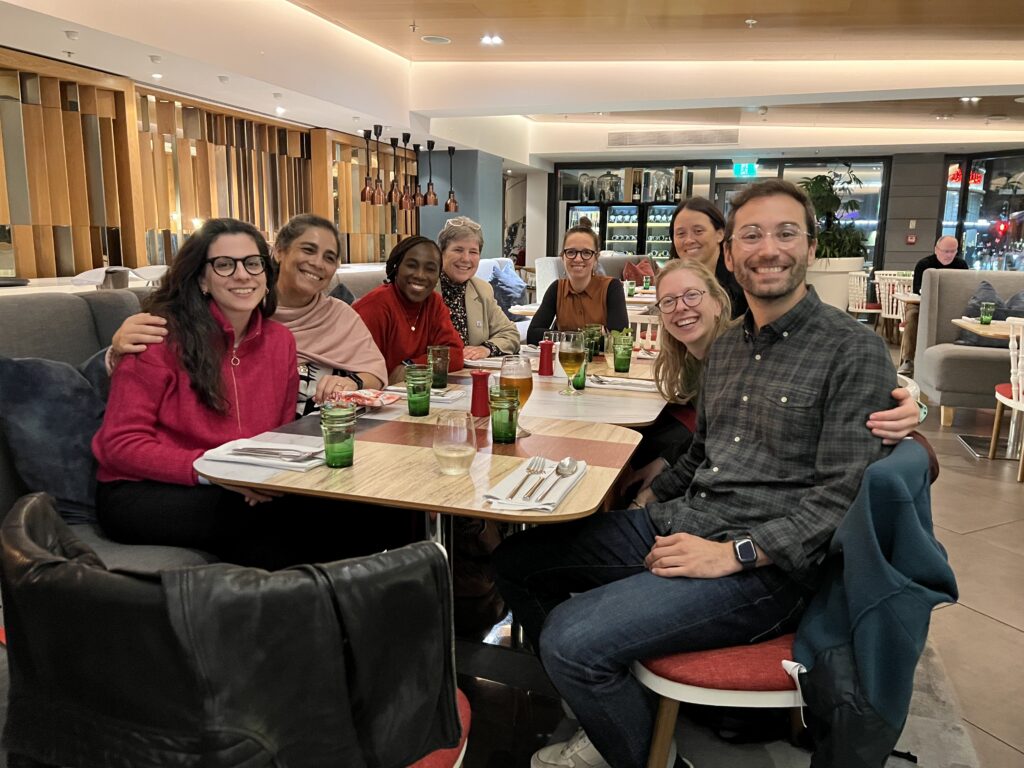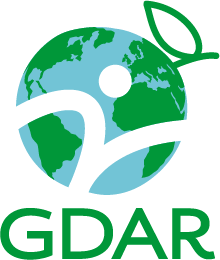2025 International Society of Behavioural Nutrition and Physical Activity (ISBNPA) conference
In June 2025, the GDAR team joined the International Society for Behavioral Nutrition and Physical Activity (ISBNPA) conference in Auckland, Aotearoa New Zealand. With a strong presence from the GDAR network, the conference was an opportunity to share our work, connect with others in the field, and reflect on the importance of context and community in global health research.
GDAR contributions included presentations from Tiago Canelas, Lou Foley, Vicky Lambert, and Feyi Wayas. Lou presented our syndemic approach to urban health across Cameroon, Nigeria, and South Africa, underscoring how scale, comparison, and interpretation are all essential when examining overlapping challenges such as the food environment, climate hazards, and physical activity infrastructure.
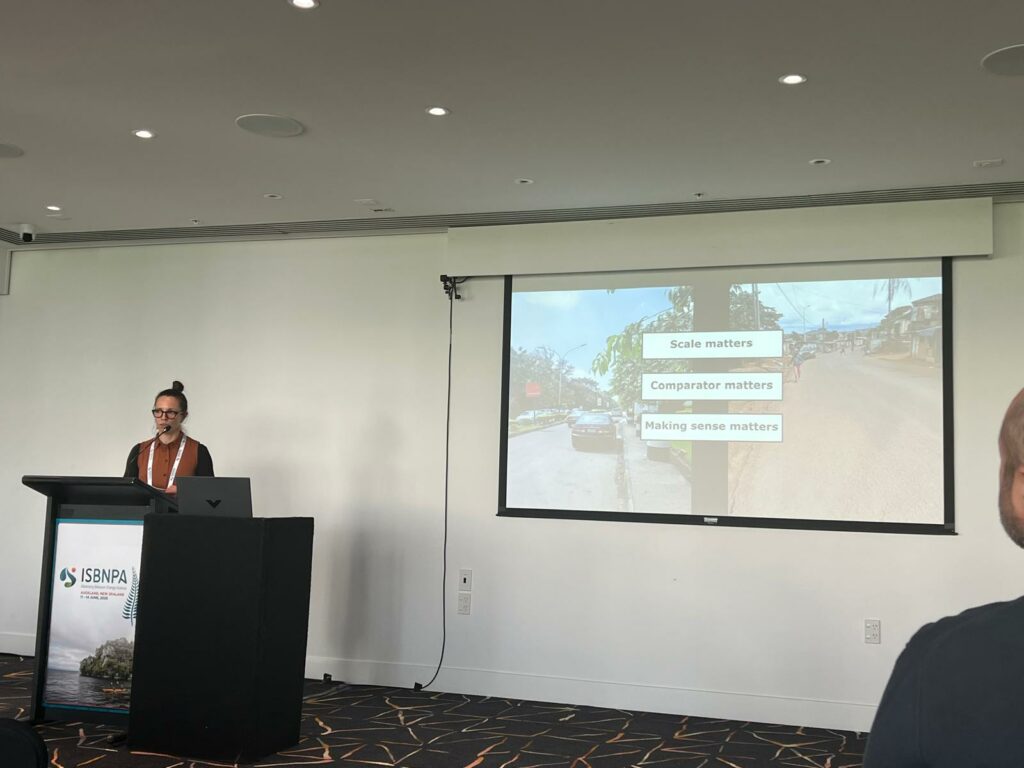
Tiago shared insights from the virtual assessment of the physical activity-related built environment in Soweto, South Africa. The research explored how contextual familiarity influenced raters’ assessments of urban features, showing significant differences between those familiar and unfamiliar with the area. The takeaway was clear: local knowledge isn’t optional, it’s essential. Tools that are not adapted or validated locally risk simplifying complex realities.
“We support virtual auditing,” Tiago said, “but only when done critically and with local voices at the centre.”
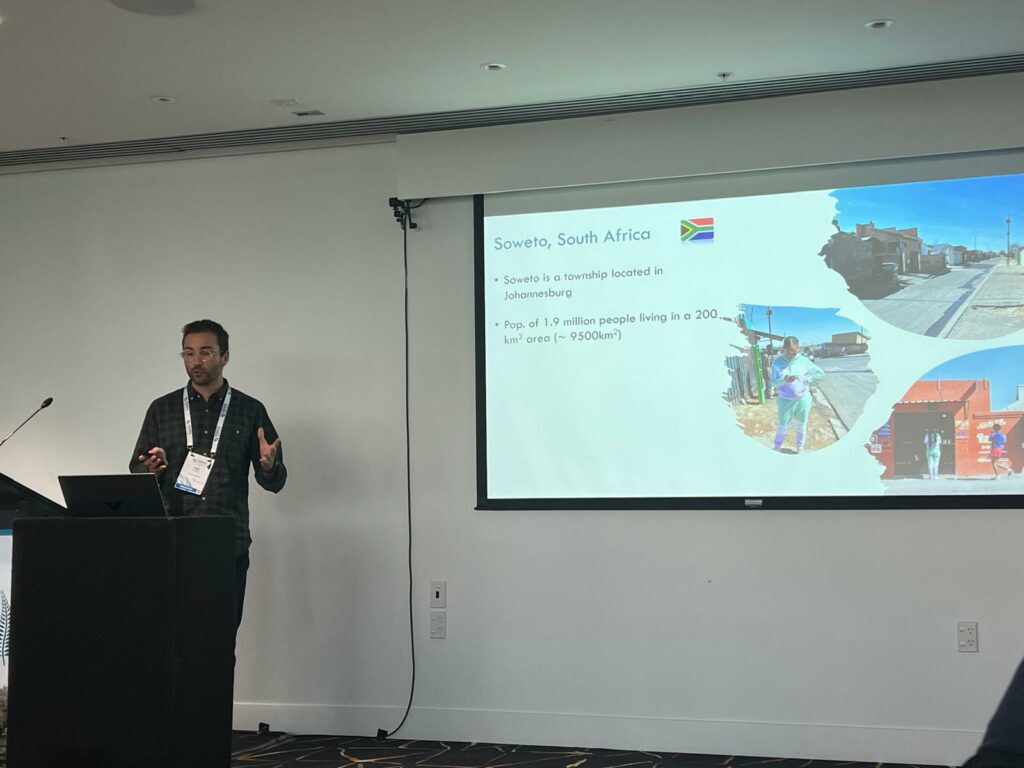
Feyi presented findings from a series of GDAR projects focused on the participatory co-design of physical activity and healthy eating interventions for urban adolescents in South Africa, showcased via a poster. Many visitors who stopped by the poster were impressed by the duration of the projects, which spanned from 2019 to 2022, as well as the variety of methods employed. They noted that these methods could be easily adapted to their own country contexts and expressed keen interest in networking.
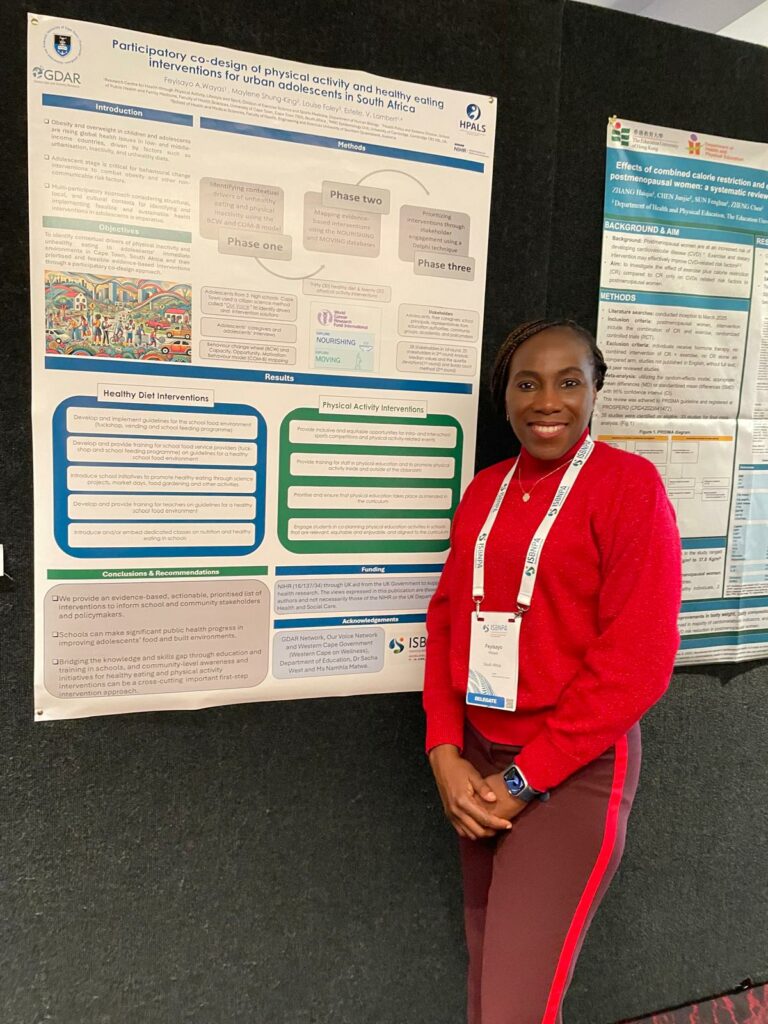
In addition, Vicki delivered oral presentations on a GDAR spin-off project and also represented the work of other GDAR members (Zulfah Albertyn-Blanchard and Olufunke Alaba) involved in projects which leveraged and built on GDAR research.
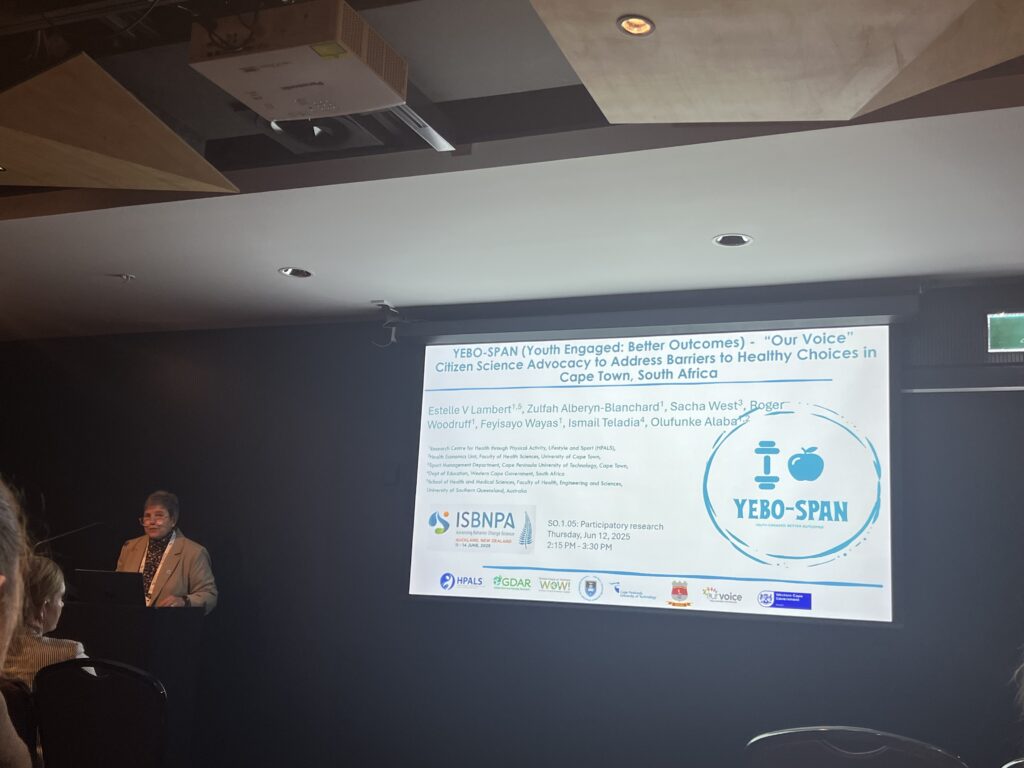
The conference programme featured a strong thread of participatory research, with more and more researchers recognising the importance of working with, not just on, communities. For GDAR researchers, this shift was both encouraging and necessary. Many discussions also centred on how to meaningfully engage communities over time, rather than letting relationships drop once funding ends, an issue we know all too well.
An absolute highlight was the presence of indigenous perspectives, which challenged participants to reflect on different worldviews and ways of knowing. The Māori cultural elements woven throughout the conference—songs, haka, and ceremonial moments—were not only moving but reminded us of the deep connection between water, land, and people (in that order).
Beyond the conference, the GDAR team made time to connect socially and physically as we are spread around the world. A pre-conference coastal run + burger led by Lou (a true local!) gave some of us a different view of Auckland’s natural beauty, and a GDAR and friends dinner midweek gave us a chance to taste the deli food in New Zealand.
With a heartfelt closing speech, ISBNPA President urged us to hold onto this sense of connection, to ourselves, our work, and the communities we serve. We left ISBNPA 2025 inspired, challenged, and reminded why the work we do (when done thoughtfully) can truly make a difference.
